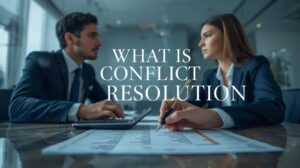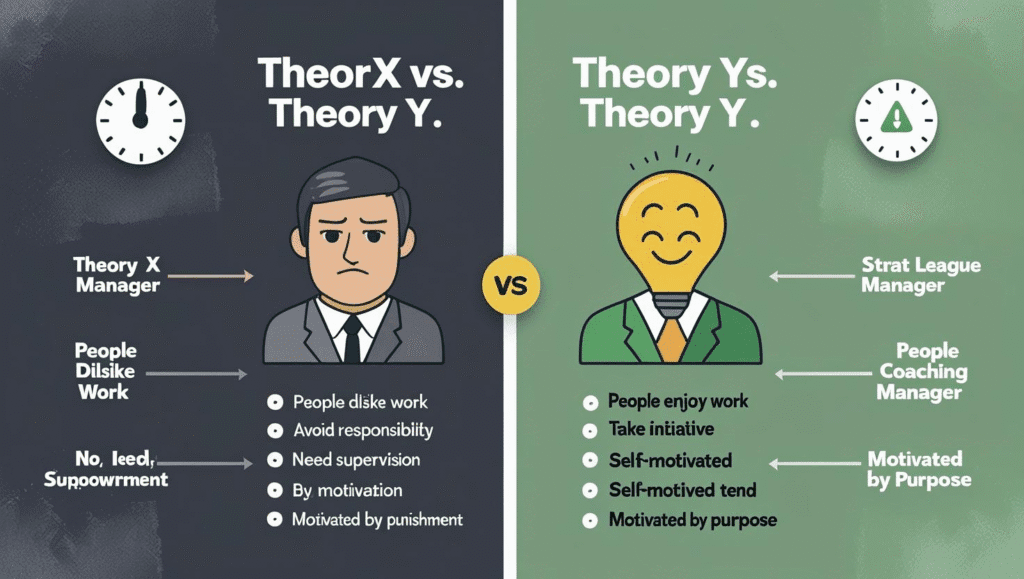What is Conflict Resolution? & The Surprising Role of the CFO as a Peacemaker
Conflict in the workplace is inevitable. Whenever passionate, intelligent people collaborate, disagreements are bound to arise. They can spring from differing opinions on strategy, competition for resources, or simple personality clashes. Left unchecked, these conflicts can poison a company’s culture, stifle productivity, and derail critical projects. This is why **conflict resolution**—the process of finding a peaceful and mutually acceptable solution to a disagreement—is one of the most vital skills in any organization. 🕊️
But when you think of a master of conflict resolution, who comes to mind? A seasoned HR professional? An empathetic CEO? A trained mediator? You probably don’t picture the Chief Financial Officer (CFO). We typically see the CFO as the guardian of the balance sheet, a data-driven expert focused on numbers, not nuances. Yet, in the modern U.S. corporation, the CFO is emerging as a surprisingly effective—and essential—figure in resolving some of the most challenging internal disputes.
This in-depth guide will first define conflict resolution and explore its core principles. Then, we will uncover the surprising and increasingly critical role the CFO plays in this process, using financial data and strategic resource allocation as powerful tools to transform emotional standoffs into objective, business-focused decisions.
Key Takeaways: Conflict, Cash, and Collaboration 💡
- Conflict Resolution is a structured process for resolving disputes in a way that is fair, sustainable, and beneficial for all parties involved.
- It’s a critical leadership skill that moves teams from unproductive disagreement to constructive problem-solving.
- The **Chief Financial Officer (CFO)** is uniquely positioned to act as an objective, data-driven mediator in many business conflicts.
- CFOs resolve conflict by reframing debates in terms of financial impact, ROI, and resource allocation, removing personal emotion from the equation.
- Understanding the financial implications of a decision is often the key to finding common ground between warring departments.
What is Conflict Resolution? A Practical Definition
Conflict resolution is not about “winning” an argument. It’s not about one side capitulating to the other. It is a set of techniques and strategies aimed at finding a positive solution to a conflict. The goal is to reach a “win-win” outcome where both parties feel that their concerns have been heard and that the final resolution is fair. It’s a proactive approach that seeks to understand the root cause of a disagreement, rather than just treating the symptoms.
A core part of this process involves navigating the values and principles at stake. A simple disagreement can often be a symptom of a deeper ethical conflict, where parties have fundamentally different views on what is right or wrong. Effective resolution requires recognizing and addressing these underlying issues.
Common Conflict Resolution Strategies
There are several well-established strategies for resolving disputes, each suited to different situations:
- Collaboration: This is the ideal “win-win” approach, where both parties work together to find a creative solution that satisfies everyone’s needs. It’s best for complex issues where relationships are important.
- Compromise: A “win some, lose some” approach. Each party gives up something to find a middle ground. It’s a quick and practical solution when a perfect collaborative outcome isn’t possible.
- Accommodation: A “lose-win” approach where one party agrees to the other’s demands. This is useful when the issue is much more important to the other party or when you want to build goodwill.
- Avoidance: A “lose-lose” strategy where the conflict is ignored or postponed. This is generally ineffective but can be useful for trivial issues or to allow for a “cool down” period.
- Competition: A “win-lose” approach where one party pushes for their own solution at the expense of the other. This is rarely advisable but may be necessary in emergency situations that require decisive action.
The most effective and sustainable outcomes typically arise from collaborative and compromise-based strategies, as these are the cornerstones of ethical conflict resolution.
The CFO as the Unlikely Peacemaker
So, where does the CFO fit into this picture? The modern CFO’s role has evolved far beyond traditional accounting. They are now key strategic partners to the CEO, and their influence extends across every department. This unique position, combined with their specific skillset, makes them powerful mediators.
“The CFO is the only executive, other than the CEO, who has a comprehensive, enterprise-wide view of the company. We see how all the pieces connect, and we see the financial consequences of every decision.”
Consider a classic corporate conflict: The Marketing department wants to launch a massive, expensive new advertising campaign to build brand awareness. The Sales department argues that the money would be better spent on hiring more salespeople to close existing leads. Both sides are passionate and believe they are right. The debate becomes emotional and political. This is where the CFO steps in.
How the CFO Resolves Conflict with Data
The CFO doesn’t take sides. Instead, they reframe the entire conflict around objective, financial metrics. They act as the “neutral translator” who turns departmental wishes into a common language: the language of return on investment (ROI).
| The CFO’s Role | Action Taken | Impact on Conflict |
|---|---|---|
| The Data Arbitrator | Asks both teams to build a financial model. Marketing must project the campaign’s impact on leads and brand value. Sales must project the revenue impact of new hires. | Shifts the focus from emotional opinions (“My idea is better!”) to data-driven forecasts. |
| The Resource Allocator | Analyzes the company’s overall budget and strategic priorities. Determines how much capital is actually available for new initiatives. | Grounds the debate in reality. It’s no longer about a hypothetical “big budget,” but about how to best use a finite amount of money. |
| The ROI Analyst | Compares the projected ROI of both proposals. Analyzes the payback period and the risk associated with each option. | Provides an objective, third-party evaluation of which investment is likely to create more value for the company as a whole. |
| The Creative Compromiser | Often finds a hybrid solution. For example: “What if we fund a smaller, pilot marketing campaign in one region and hire one new salesperson, then measure the results after one quarter?” | Moves the parties from a competitive “win-lose” mindset to a collaborative or compromise-based solution that allows both ideas to be tested. |
In this scenario, the CFO didn’t “solve” the conflict in a traditional sense. They transformed it. By forcing the debate onto the neutral ground of financial analysis, they drained the emotion and politics out of the disagreement and guided the teams to a logical, data-driven business decision.
Mastering the Art of Resolution
Whether you’re a CFO or a team lead, developing your conflict resolution skills is essential. These books, available on Amazon, are modern classics on negotiation, communication, and leadership.

Crucial Conversations: Tools for Talking When Stakes Are High
An indispensable guide for handling high-stakes disagreements. It provides a step-by-step process for creating dialogue and finding mutual purpose.
View on Amazon
Getting to Yes: Negotiating Agreement Without Giving In
The foundational text on principled negotiation from the Harvard Negotiation Project. It teaches you to separate the people from the problem and focus on interests, not positions.
View on Amazon
Influence, New and Expanded: The Psychology of Persuasion
Understanding the psychology of why people say “yes” is a key part of resolving conflict. Cialdini’s classic work is a masterclass in ethical persuasion.
View on AmazonFrequently Asked Questions (FAQs)
Q1: Is all conflict in the workplace bad?
A: Not at all. There is a difference between **constructive conflict** (also known as cognitive conflict) and **destructive conflict** (affective conflict). Constructive conflict is a debate over ideas, strategies, and different ways of solving a problem. It’s healthy and leads to innovation. Destructive conflict is personal, emotional, and attacks individuals rather than ideas. The goal of conflict resolution is to turn destructive conflict into constructive conflict.
Q2: Why is the CFO better suited for this role than other executives, like the COO?
A: While a Chief Operating Officer (COO) is also a strong mediator, the CFO holds a uniquely neutral position. A COO is directly responsible for the operational departments (like Sales and Marketing), which can make them seem biased. The CFO’s primary responsibility is to the financial health of the *entire* company, not any single department. This financial stewardship grants them a level of objectivity that is hard to match.
Q3: What if the conflict isn’t about money or resources?
A: The CFO’s role is most effective in conflicts that are, at their root, about resource allocation. For conflicts that are purely interpersonal or based on communication styles, an HR professional or a direct manager with strong emotional intelligence skills is often a better mediator. The key is to match the mediator’s skillset to the nature of the conflict.
Q4: How can I start using a more data-driven approach to resolve conflicts on my own team?
A: Start by reframing the debate. When team members are in disagreement, ask them to step back from their personal opinions and find data to support their positions. Ask questions like, “What data do we have to support that idea?” or “How could we run a small experiment to test which approach is more effective?” By acting as a “mini-CFO” for your team, you can guide them toward more objective and productive conversations.


